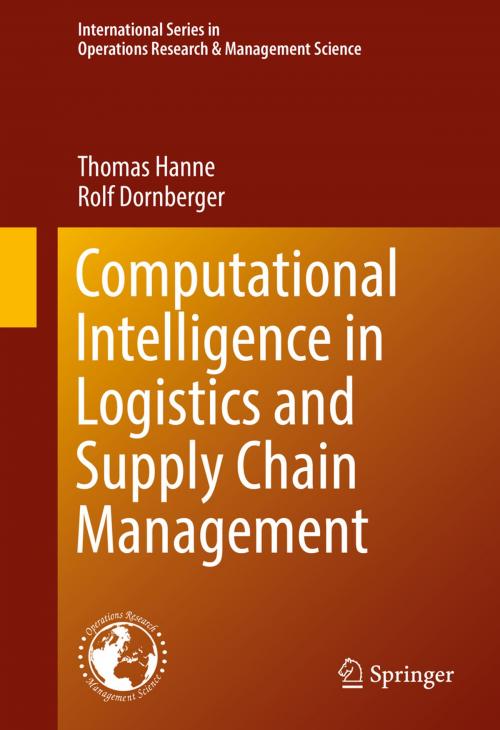Computational Intelligence in Logistics and Supply Chain Management
Business & Finance, Management & Leadership, Operations Research, Production & Operations Management| Author: | Thomas Hanne, Rolf Dornberger | ISBN: | 9783319407227 |
| Publisher: | Springer International Publishing | Publication: | July 27, 2016 |
| Imprint: | Springer | Language: | English |
| Author: | Thomas Hanne, Rolf Dornberger |
| ISBN: | 9783319407227 |
| Publisher: | Springer International Publishing |
| Publication: | July 27, 2016 |
| Imprint: | Springer |
| Language: | English |
This book deals with complex problems in the fields of logistics and supply chain management and discusses advanced methods, especially from the field of computational intelligence (CI), for solving them.
The first two chapters provide general introductions to logistics and supply chain management on the one hand, and to computational intelligence on the other hand. The subsequent chapters cover specific fields in logistics and supply chain management, work out the most relevant problems found in those fields, and discuss approaches for solving them. Chapter 3 discusses problems in the field of production and inventory management. Chapter 4 considers planning activities on a finer level of granularity which is usually denoted as scheduling. In chapter 5 problems in transportation planning such as different types of vehicle routing problems are considered. While chapters 3 to 5 rather discuss planning problems which appear on an operative level, chapter 6 discusses the strategic problem of designing a supply chain or network. The final chapter provides an overview of academic and commercial software and information systems for the discussed applications.
There appears to be a gap between general textbooks on logistics and supply chain management and more specialized literature dealing with methods for computational intelligence, operations research, etc., for solving the complex operational problems in these fields. For readers, it is often difficult to proceed from introductory texts on logistics and supply chain management to the sophisticated literature which deals with the usage of advanced methods. This book fills this gap by providing state-of-the-art descriptions of the corresponding problems and suitable methods for solving them.
This book deals with complex problems in the fields of logistics and supply chain management and discusses advanced methods, especially from the field of computational intelligence (CI), for solving them.
The first two chapters provide general introductions to logistics and supply chain management on the one hand, and to computational intelligence on the other hand. The subsequent chapters cover specific fields in logistics and supply chain management, work out the most relevant problems found in those fields, and discuss approaches for solving them. Chapter 3 discusses problems in the field of production and inventory management. Chapter 4 considers planning activities on a finer level of granularity which is usually denoted as scheduling. In chapter 5 problems in transportation planning such as different types of vehicle routing problems are considered. While chapters 3 to 5 rather discuss planning problems which appear on an operative level, chapter 6 discusses the strategic problem of designing a supply chain or network. The final chapter provides an overview of academic and commercial software and information systems for the discussed applications.
There appears to be a gap between general textbooks on logistics and supply chain management and more specialized literature dealing with methods for computational intelligence, operations research, etc., for solving the complex operational problems in these fields. For readers, it is often difficult to proceed from introductory texts on logistics and supply chain management to the sophisticated literature which deals with the usage of advanced methods. This book fills this gap by providing state-of-the-art descriptions of the corresponding problems and suitable methods for solving them.















